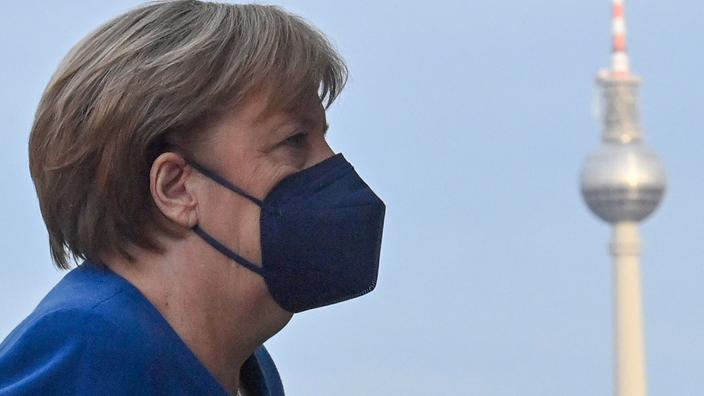More young people, more women, more elected officials with an immigrant background: the new German chamber of deputies, which is holding its first session on Tuesday, October 26, is blowing a breeze of diversity but is still far from reflecting society.
One month after the legislative elections of September 26, it is time to return to school for the 736 elected members of the Bundestag.
This assembly will be responsible for officially appointing the new chancellor, most likely Olaf Scholz, when his Social Democratic Party (SPD), which won the ballot, has completed its coalition negotiations with the ecologists and the liberals.
Read alsoGermany threatened by political instability
While waiting to see her successor move to the chancellery, Angela Merkel will take her place on Tuesday in the honorary tribune of the parliament: her government is no longer in charge of current affairs and herself, for the first time in 31 years, has not run for deputy. In her electoral gall in the Baltic Sea, it was the 27-year-old Social Democratic candidate (SPD), Anna Kassautzki, who took the seat from the Conservatives (CDU). As a symbol of the debacle of Angela Merkel's party and the rejuvenation of the SPD troops, half of the 206 deputies of which are newly elected, with an average age of 45 years.
Among the 118 Green MPs, the third group behind the Conservatives and Social Democrats, the two youngest elected are 23 years old.
Another sensation in Germany: a black woman is going to sit in the Bundestag for the first time.
A member of the Greens, Awet Tesfaiesus, 47, was born in Eritrea.
Arrived in Germany at the age of 10, this lawyer from Kassel (center) has devoted her career to defending the rights of immigrants and refugees.
“We need diversity in this country,” she
pleaded in an interview with AFP.
"We need people who are victims of racism to be better represented."
"We are witnessing a revival in politics"
With Karamba Diaby, of Senegalese origin, who was the first black MP elected in the former GDR, and Armand Zorn, who arrived from Cameroon at the age of 12, they will be the only three blacks in an assembly largely dominated by men and whites. However, the number of deputies of foreign origin is increasing. With 83 elected representatives born abroad or of whom one of the two parents was born abroad, they represent 11.3% of the Bundestag, against 8.2% (58 deputies) in the previous assembly.
“We are witnessing a revival in politics,”
notes Deniz Nergiz, director of the Federal Council for Immigration and Integration (BZI), which promotes the political participation of people of foreign origin.
"There is also for the first time a refugee elected in eastern Germany"
where the number of foreigners is much lower, explains the expert to AFP. Also among the newly elected: Lamya Kaddor, who teaches Islamic religion in schools in the Ruhr area, a subject that has been hotly debated in recent years in Germany. During the four years of her mandate, Awet Tesfaiesus wanted to fight against the
foreign
"label"
which stuck to her skin despite her German passport.
"Racism is felt everywhere, in a latent way"
, she assures,
"when I look for an apartment, when the postman walks into my law office and speaks with my secretary because automatically he thinks that she is. my superior. "
Read also Angela Merkel or the power of pragmatism
But with more diversity, the Bundestag is still a long way from representing German society.
"We are still far behind the 26% (of people of foreign origin) in society as a whole"
, explains Deniz Nergiz.
The same observation can be made for the number of deputies, largely under-represented in a country which has just been ruled for 16 years by a woman.
They still only constitute 24% of the assembly against 20% under the previous legislature.
For the third time only, the Bundestag will be chaired by a woman: the socialist Bärbel Bas, 53, should succeed the essential Wolfgang Schäuble, member of the Bundestag since ... 1972.
And significant disparities remain between parties.
The Greens will have a majority of women (59%) including two transgender women, Tessa Ganserer and Nyke Slawik.
In the far-right Alternative for Germany (AfD) party, they represent only 13% of the deputies.






